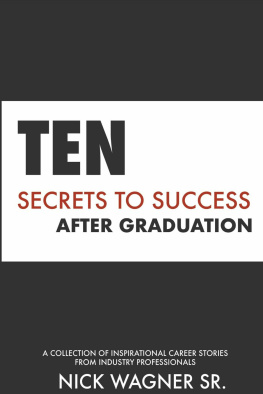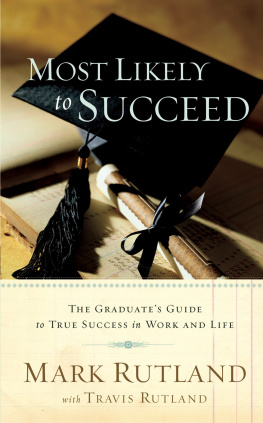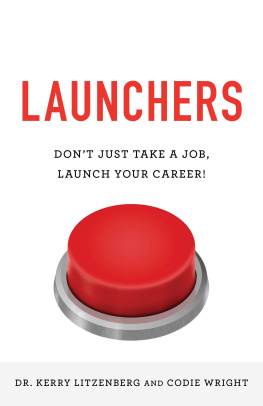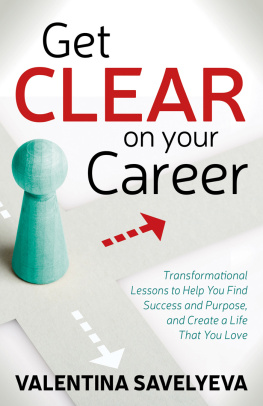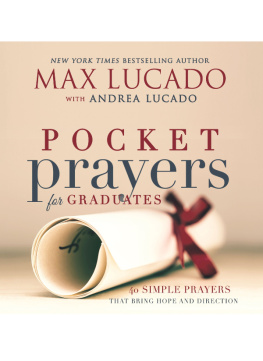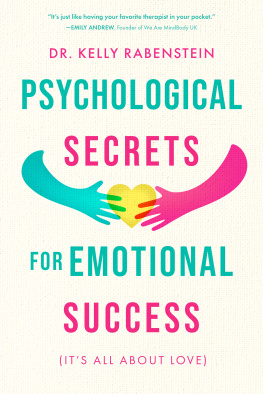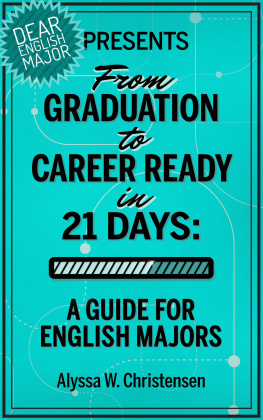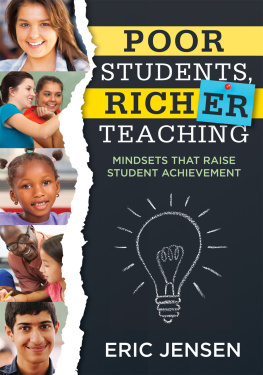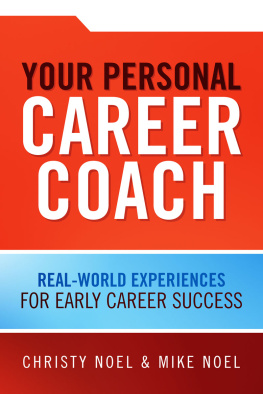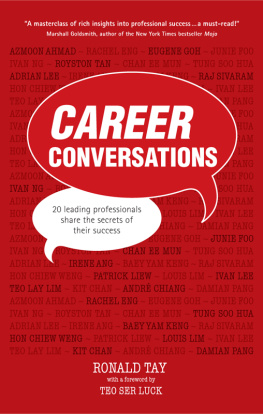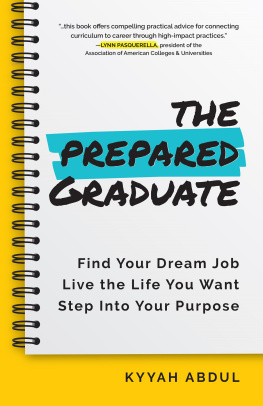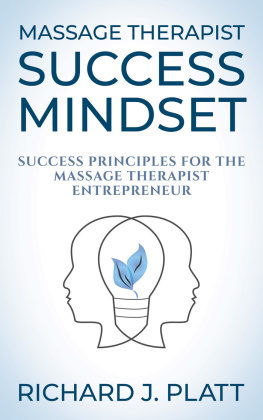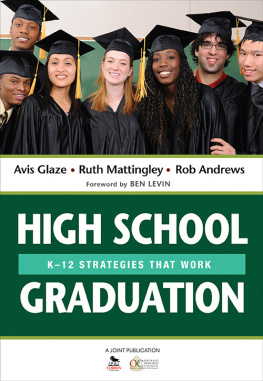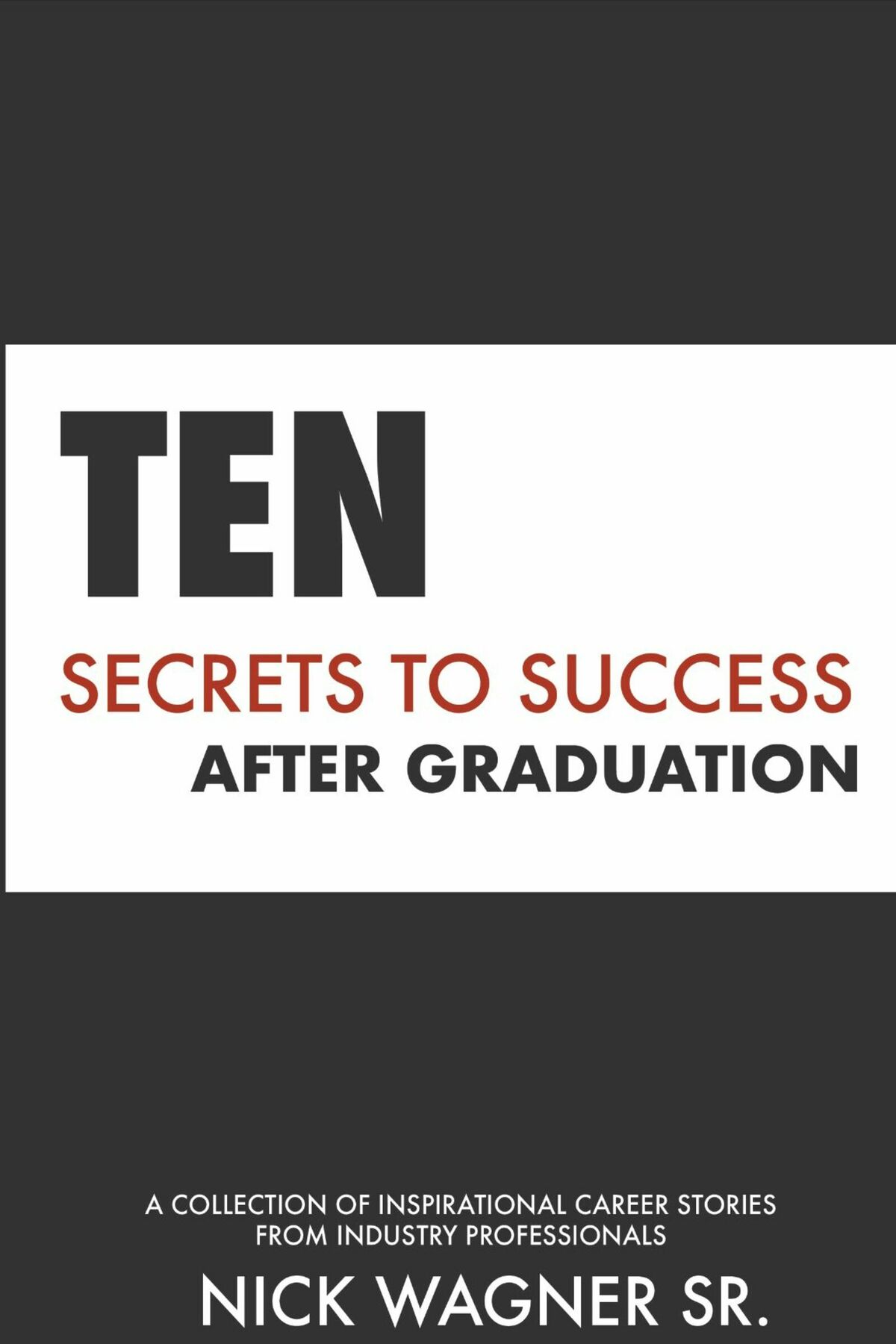"Why are you writing a book? You don't even read books." That's what my wife said when I told her I wanted to write this book. I laughed a little and told her that this was a way for me to give back, inspire others and share valuable advice from some of the most amazing people I know. I could tell she had concerns: How much time would this take? Who would contribute? Who would edit it? She has known me for more than fifteen years and has learned that when I want something, the activator and achiever in me will make it happen.
That conversation happened during the summer of 2019. It took time and a lot of editing, but with the help of some amazing, inspirational people, I got it done.
I wrote a book.
I did not grow up thinking I would ever write a book. According to the CliftonStrengths assessment, communication is one of my top five strengths, but the written word has never been my preferred method of communicating. I can talk to anyone, love telling stories and create and deliver presentations with ease, but writing has never been my thing. I knew I couldnt do this alone, and that is why I asked for help from my friends.
As you read this book, I hope you enjoy the stories from our contributors who have bravely shared some of their most personal moments of success, failure and perseverance. Some of the stories will make you wonder, some will make you cry, some will make you laugh, but I hope all will inspire and empower you.
Our stories are from a diverse group of contributors. You will hear from baby boomers, Gen X and Millennials. Some of our contributors are still working today, while others have retired from their full-time careers and moved on to something different. They work in a variety of industries, including information technology, entertainment and human resources. Some are entrepreneurs, and some work in corporate America. While all are very different, I picked these people specifically due to their unique perspectives on life.
I urge you to keep an open mind as you read each chapter. Not every story will resonate with you, not every story will be relevant to you, and not every story will make you want to change the world. Everyone is different. What drives us is different, and what inspires us is different. I do, however, believe that you will learn something that you didnt know before opening, downloading or listening to this book.
Each chapter begins with the bios of the individuals sharing their stories and how you can connect with them. At the end of each chapter, I share actions for you to take. This could be an activity or assessment to complete or advice on how to take the next step.
While you are reading, feel free to take notes, underline words that resonate with you and think about how you can apply this to your life. The chapters do not need to be read in order, and you do not have to read the book all at one time. You choose how to consume the content. I hope you enjoy the book, and I thank you for giving me the opportunity to empower and inspire you.
Nick Wagner Sr.
You will hear from Nick Wagner Sr.
Bio for Nick:
Nick Wagner Sr. is a husband, father and son. His passion for people is what drives him in his corporate work at Cigna as a human resources professional and with the nonprofit, CITE Inc. he launched with his wife. As a lifelong entrepreneur, Nick is always starting new initiatives and trying to give back to the community and inspire individuals. He hopes this book will do just thatinspire people to reach their Full Potential. The Full Potential Movement is an initiative Nick created under his non-profit to assist people with their careers. This is the first book in what Nick is calling the Full Potential book series.
Connect withNick:
Email: nickwagner@outlook.com
LinkedIn: linkedin.com/in/nickwagnersr
Website: www.nickwagnersr.com
Website: www.FullPotentialMovement.com
Real Life
When I decided to write this book, I immediately knew what I wanted to focus on in Chapter 1. For years, I've talked to mentees, early career associates and coworkers about how hard real life is on a day-to-day basis. I define real life as your experiences post-school, whether it be high school, community college or a four-year university. You finish school and before you know it:
You find a job or start a business.
You get your own place.
You have bills.
You have responsibilities.
You may be diagnosed with an illness.
You fall in love.
You have a bad breakup.
You get married.
You buy a house.
You have children.
You need to save for retirement.
You start taking care of your parents.
You lose a parent.
Etc.
All of these things are hard. NONE of them are easy. But think about this: When you are in school, you get a teacher, a syllabus, and peers to help you along the journey. Sure, school is challenging, but it is structured, and there are many resources in place to help you succeed. Real life post-school is VERY different.
There is no syllabus for life. There is no teacher. For most young people, real life is about making mistakes and surviving (and learning from) their consequences. If you are successful at overcoming these obstacles, this can be an exciting and powerful experience. But for many of us, it can be difficult and lead us to make poor life decisions. You quickly realize how tough life can be when you don't have step-by-step instructions for the next three months. Once school is over, the structure you have been so accustomed to since you were a kid disappears. This is the first time being on your own. Whom do you turn to for advice? How do you know whom to trust?
Decision-making is an important skill no matter your age. As a preschooler: Do I eat thePlay-Doh? In elementary school: What should I get for dessert at lunch? In middle school: Should I ask this boy or girl to the school dance? In high school: Am I going to college or gettinga job? As you grow, your decisions carry more weight, especially post-school:
Is this apartment the right one?
Which companydo Igo withfor car insurance?
Do I stay at my current job or takea differentopportunity?
How much money should I save each month foran emergency fund?
Should I pick the HRA or HSA health plan?
Am I too young to get married?

